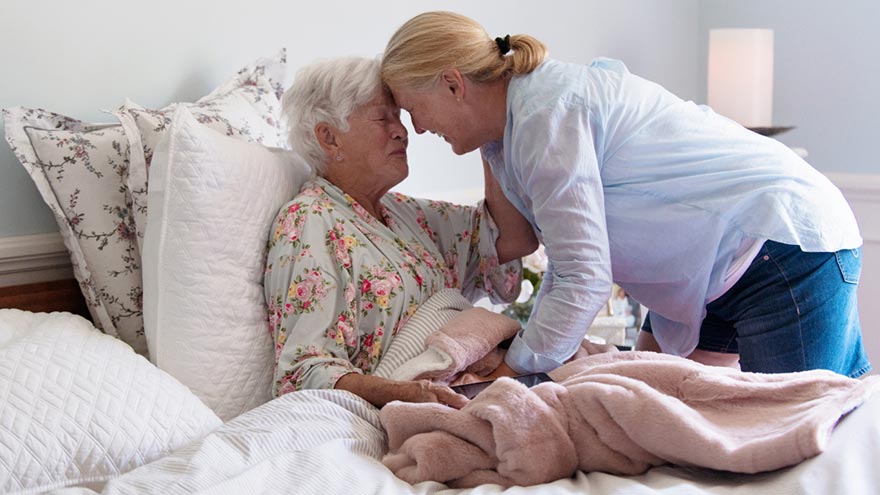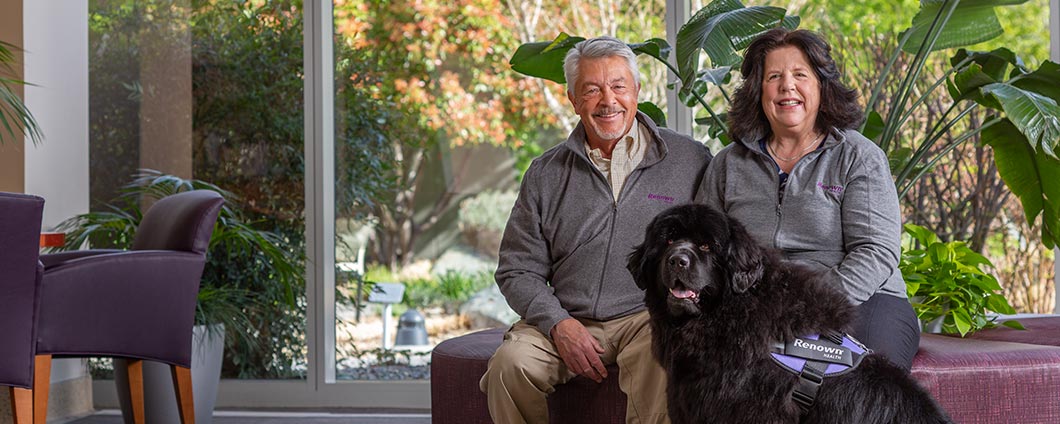Search
Results for 'baby safe class'
Clear-
When Should You Consider Hospice? 5 Important Signs
Deciding on hospice care for a loved one is a deeply personal and challenging decision, balancing their wishes and medical realities. Rebecca Edwards, DNP, from Renown Hospice Care, explains the signs indicating when it might be time for hospice and offers guidance on navigating this decision with compassion and clarity. Understanding Hospice Care Before exploring the decision-making process, it’s crucial to have a clear understanding of what hospice means. Hospice care represents a shift in how we approach living with a terminal condition, emphasizing comfort, dignity, and quality of life above all else. When there is no longer a pathway to a cure, side effects of treatment outweigh the benefits, or someone is simply tired of frequent hospital visits, then it may be time for hospice. Hospice care is mainly done in the home, where most people wish to be. It's a compassionate, team approach to care that focuses on meeting the physical, emotional, and spiritual needs, supporting their families, and honoring individual preferences. 5 Critical Signs to Be Aware Of Decline in Overall Health: When a loved one's health continues to decline despite ongoing medical interventions, this may be a sign that these treatments are no longer effective. Increasing Pain and Symptoms: When managing symptoms such as pain, nausea, fatigue or shortness of breath becomes increasingly challenging, hospice can offer specialized support and expertise in symptom management. Frequent Hospitalizations: Repeated hospitalizations or emergency room visits can signify that the disease has progressed to a point where managing symptoms and providing comfort at home or in a hospice setting is a more appropriate approach. Difficulty with Daily Activities: If your loved one is experiencing difficult with activity of daily living such as dressing, bathing, or mobility, it may be a sign that they require additional support and assistance. Prognosis of Six to 12 Months: Hospice Care is typically recommended for patients with a prognosis of about one year or less if the disease follows its normal course. However, it’s important to remember that every individual is unique and prognosis can vary.
Read More About When Should You Consider Hospice? 5 Important Signs
-
Grief and Bereavement Resources
Feelings of grief can take on many forms and can occur in reaction to many situations, including the death of a loved one or a medical diagnosis for yourself or someone close to you. It is important to remember that this reaction is entirely natural, and many people who experience grief find outside help to be a valuable part of the healing process. Below is a list of both local and national grief and bereavement resources for all ages and specificities. If you or someone you know is experiencing grief, the trained professionals below are here to help. Solace Tree Support groups for children and teens (ages 3 to 18), young adults and their family members. For more information visits solacetree.org/grief-programs or call 775-324-7723. Healing Minds Counseling services for those coping with the loss of a loved one or major life change. For more information visit healingminds.com/grief-counseling-reno-nv or call 775-448-9760. Circle of Life Hospice Support groups open to the community held the first and third Tuesday of every month. Fore more information visits colhospice.com/bereavement-and-spiritual-care or call 775-827-2298. Summit View Hospice Grief and bereavement support open to the community-groups, memorials and by mail. For more information visit summitviewhospice.com or call 775-636-9598. The Compassionate Friends Monthly support group on the second Monday of each month for families after a child dies. Fore more information visit facebook.com/TheCompassionateFriendsofReno, compassionatefriends.org or call 775-750-7005. Healing for Survivors of Suicide Links and resources for those who have lost a loved one to suicide. For more information visit survivingsuicide.com GriefShare Grief recovery support groups meeting weekly both in-person and online with options in Reno/Sparks, Carson City and rural cities. For more information www.griefshare.org National Alliance for Grieving Children Resources for parents and caregivers to help children navigate the challenges of bereavement and grow into healthy adults. For more information visit nacg.org/resources-and-support/ Mourning Hope Grief Center Grief support groups, counseling, resources and COVID-19 support for children, adults and families before and after a death loss. For more information visit mourninghope.org Crisis Support Services of Nevada 24/7, free, confidential and caring support to people in crisis across Nevada and the U.S. For more information visit cssnv.org, call 775-784-8090 or text CARE to 839863 National Alliance on Mental Illness-Warmline A stigma-free, non-crisis phone service you can call or text that is staffed by trained peers in recovery. For more information visit namiwesternnevada.org/resources/ or call 775-241-4212. Vitas Healthcare Grief and bereavement resources and support groups both virtual and phone-in. For more information visit vitas.com/family-and-caregiver-support or call 866-489-0583. St. Mary’s - Hospice We Promise Resources on grief for all groups including children to adults, trauma, caregivers and more. For more information visit hospicewepromise.com/topics/grief or call 775-525-6700. Mountain View Mortuary Grief support and tools available to assist you in your healing journey including “365 Days of Healing” email list for daily support and comfort. For more information visit mountainviewmortuary.net/resources/grief-support or call 775-788-2199 Sesame Street – Helping Kids Grieve Discover games, videos and more on topics important to you and your child. For more information visit sesamestreetincommunities.org/topics/grie Trauma Intervention Program-Northern NV A national non-profit organization of volunteers dedicated to ensuring those emotionally traumatized receive assistance. For more information visit tipnnv.org/about-tip/resources Pregnancy & Infant Loss Support Organization A non-profit organization dedicated to the support of families who have lost a baby through miscarriage, stillbirth or neonatal death. For more information visit pilsos.org Caring Info A program of the National Hospice & Palliative Care Organization providing free resources to help people make decisions about end-of-life. For more information visit nhpco.org/patients-and-caregivers/


